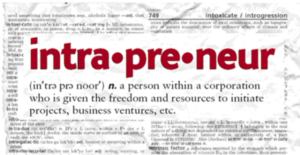Military Traits That Serve Entrepreneurs
By Debbie Gregory.
A disproportionate number of Chief Executive Officers (CEOs) have military experience when compared to their civilian counterparts in the business world. It is not a secret that skills acquired during military service provide individuals with a strong sense of leadership, as well as the ability to assemble a successful team. For military and veteran entrepreneurs who are in the early stages of launching their businesses, they would be well served to tap into their military training.
First and foremost, military training has taught servicemembers to lead with a clear vision and plan. Strong leaders have the right assets and tools in place to build trust and confidence in any situation. A leader should be a visionary and have greater foresight. A leader should have the ability to accept and embrace failure.
Additionally, it is paramount to know and have a clear vision of your mission. By having a defined goal, you can then break that goal down into smaller, more manageable steps towards completion. Keeping mission focus at all times and also allow your people to be creative and innovative.
Your team is very important to your success. Be sure to build a team that is prepared to pitch in and move out of their comfort zones. When you embrace cultural diversity and different ways of thinking, you tap into a much greater pool of talent. Encourage your team to use their strengths to help your company succeed. Working as a cohesive unit will promote a sense of camaraderie which will help you through difficult times that may arise.
It’s no easy task to navigate the road to entrepreneurship. But if you’re a servicemember or a veteran considering this path, you already embody the courage, discipline and commitment it takes to begin this journey. It may not happen overnight, but in the end, the reward will be well worth it.
Veteran and Military Business Owners Association, VAMBOA,












